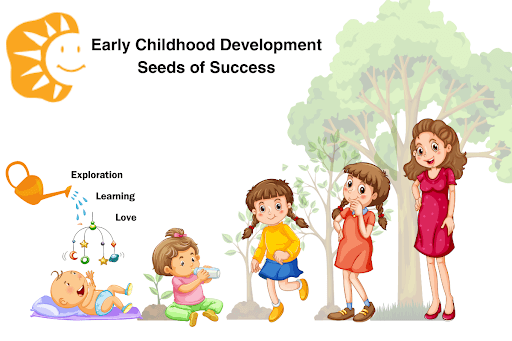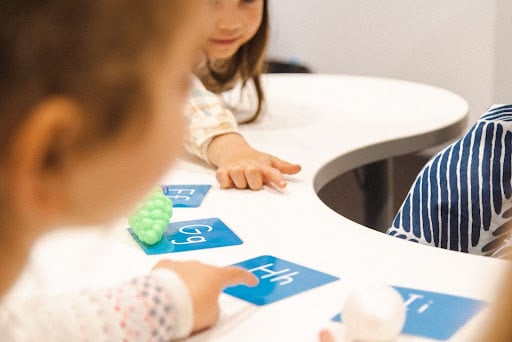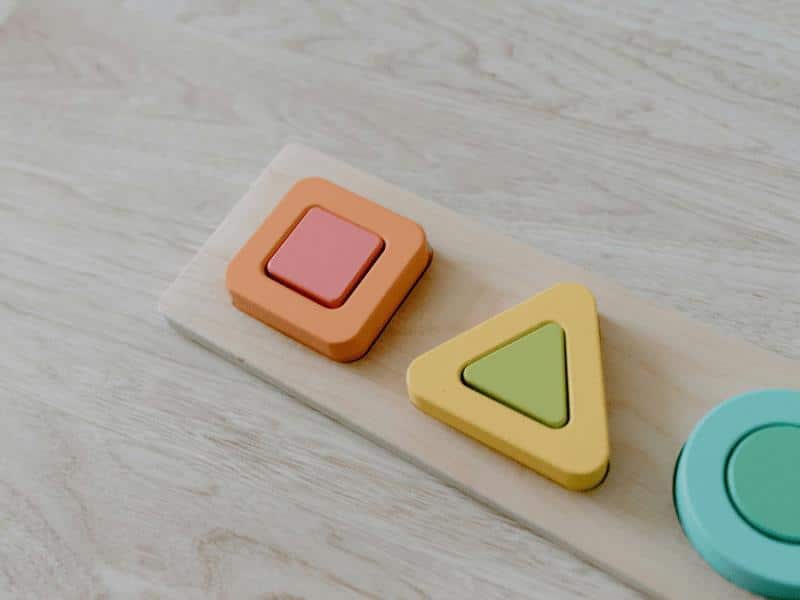
Why You Should Invest in Your Child’s Early Learning Development
Is early childhood learning a crucial part of your child’s formative years? Should you invest in your child’s early learning development? The answer is a resounding YES. Recently, early childhood education has been in the spotlight, with its importance highlighted in various media and through discussions around national tests like NAPLAN and global assessments like OECD-PISA.
Parental involvement in early childhood development is key. If you want to understand more about how to make your child’s future a better one, you are probably curious how early childhood learning can benefit them.
Why is Early Childhood Development Important?
Building cognitive foundations
A rich, stimulating environment during early years ignites brain development, creating a strong base for all future learning. Without this foundation, children may struggle as learning becomes more complex.
Enhancing language and conceptual skills
During these formative years, children are not just learning language; they are also developing an understanding of basic concepts that will be used throughout their lives. Exposure to a language-rich environment is crucial in nurturing their inherent potential for language, numeracy, critical thinking, literacy, and creativity.
Understanding feelings and getting along with others
In these early years, kids are doing more than just learning to read and write; they’re also figuring out their feelings and how to get along with others.
This is all about helping them understand what they’re feeling, why they feel that way, and how to talk about those feelings. They’re also learning to put themselves in someone else’s shoes, which helps them make friends and play well with others.
Group activities where kids share, take turns, and work together are super important. They help kids grow into adults who can handle their emotions and work well with different kinds of people.
Nurturing independence and confidence
Early learning experiences shape a child’s self-esteem and independence. By providing opportunities for children to explore, make decisions, and solve problems, they develop confidence in their abilities. This confidence is key to their future success in school and life.
Establishing relationships
From the earliest moments, the bonds formed with family and caregivers lay the foundation for future relationships. Positive early interactions foster trust, empathy, and the ability to form healthy relationships later in life.
Preparing for future academic challenges
Investing in early childhood education equips children to face future academic challenges with resilience. A strong early foundation means they are better prepared when they start formal schooling, adapting more easily to structured environments and excelling in various academic areas.
Invest in Early Childhood Development During the Sensitive Years: Ages 0-5
The Sensitive Years, spanning from ages 0 to 5, are truly a golden window of opportunity in a child’s development. These years lay the groundwork for your child’s entire future. Here’s a closer look at why these years are so vital to invest in early childhood development.
Building the brain’s foundation
Imagine your child’s brain development as the construction of a house. The early years are when the foundation is laid.
A child’s brain in these years absorbs everything from their environment, building the base upon which all future learning, behaviour, and health depend. It’s during this time that their brain forms new connections at an incredible rate. The richness of experiences during these years is key – if the environment lacks stimulation, the brain’s development may not reach its full potential.
Learning the basics
This period is when your child starts picking up basic life skills – language, numeracy, and even early concepts of empathy and problem-solving.
It’s astonishing how children at this age can absorb multiple languages and complex concepts. Much like a seed needs the right nurturing to grow – sunlight, water, and fertile soil – your child needs a nurturing environment filled with love, learning, and exploration. This nurturing is what helps them understand and make sense of the world around them.
Forming strong bonds
From birth, babies are primed to connect with the world around them. They recognise faces, distinguish between different family members, and are sensitive to the tones of voices.
These early interactions lay the foundation for trust and teach children how to build and maintain relationships. As a parent, your interaction, the way you play, talk, and engage with your child, profoundly influences their learning and attitudes towards others and the world.

These Sensitive Years in a child’s life are the cornerstone of their future development. The right parental involvement in early childhood development through nurturing, learning, and bonding during these years can have a profound and lasting impact.
What happens in this period sets the tone for their lifelong journey, making this small window of opportunity a truly remarkable and impactful time.
Common Questions on Early Childhood Learning
Do you find that you have any of the following concerns? These are questions many parents ask when thinking about early childhood learning.
How can I educate my child without putting too much pressure on them?
Focus on integrating learning into playful and everyday activities. The goal is to make learning feel like a natural and enjoyable part of life, rather than a pressured task. Activities like reading stories, simple counting games, and exploring the world during daily routines can be both educational and fun.
What are some ideas for investing in early childhood education?
Investing in your child’s early development can be as simple as engaging in educational play at home–you can discover plenty of free educational resources and activities on our blog.
You may also wish to enrol your child into the Shichida early learning program which offers whole-brain training to nurture young minds comprehensively.
I want my child to enjoy their childhood; will structured learning overwhelm them?
Early learning should be about enjoyment and exploration. Structured learning at this stage doesn’t mean rigid or formal education. It’s about providing varied experiences that spark your child’s curiosity and interest in a playful way.
Ensure that the activities are aligned with your child’s interests to keep them engaged and happy.
How can I spend constructive and quality time with my child to create happy memories?
Create quality time by engaging in activities that both you and your child enjoy. This could include reading together, cooking, or doing arts and crafts. These moments offer great opportunities for learning and bonding, ensuring that the time spent is both meaningful and memorable.
How can I balance fun and learning in my child’s activities?
Fun is a natural pathway to learning for young children. Choose activities that are engaging and enjoyable, such as outdoor adventures, creative arts, or interactive games. When fun is incorporated into learning, it encourages a natural and positive attitude towards education.
By addressing these questions, parents can create a nurturing environment that balances education, fun, and quality time, ensuring their child enjoys a fulfilling and enriching childhood.
The Shichida Method: Embracing the Best in Early Learning
To a child, learning is play and play is learning. They do not know the difference because their growing brains are hungry for knowledge and learning. However, every child learns differently so it is important to find a way to help a child engage in a way, where not only are they gaining knowledge, but the seed is planted in them to seek out learning and knowledge for themselves.

At Shichida, you will be shown how early learning takes on a new meaning, where you will be guided and shown what and how to work with your child and most importantly, have fun with your child. With just 50 minutes a week, parents and children will create a foundation together that lasts a lifetime.
Each week, your child will:
Experience comprehensive early childhood learning that leads to building success upon success:
- Every part of the Shichida Method leads naturally and organically to the next step.
- A child learns a certain topic when the child can learn it the best (age-appropriate).
- They are given many opportunities to learn the material in a loving and supportive environment, and the child is set up to succeed because they are given as many positive experiences as possible in that 50 minutes period.
Focus on input from 0-3 years old and output from 4-6 years old:
- Because the child is learning all the basic concepts, they are given a wide range of engaging material to interact with.
- Children are given an opportunity to learn through simple exposure, along with hands-on activities.
- They are not pressured or tested.
- Throughout the early years as they gain more confidence, their output bursts forth from 4 years old.
- The children will be full of confidence and excitement when it comes to learning.
- They learn to gradually see how they can make a unique and amazing difference in the world. That is why we focus so much on creating that strong foundation.
Quality time and fond memories:
- Bonding time spent with parents.
- Fun and engaging learning activities establish a love of learning as the child has positive emotions repeated over time.
- In the span of just 50 minutes, the Shichida program offers an ideal capsule of quality time that you can spend with your child.
- This will also help your child become an independent learner once they go out in the world, carrying the warm memories of these very special and fleeting moments.
- On top of it all, this program teaches parents how to be their child’s first best teacher. When parents and children learn together, magic happens.
As you can see, the Shichida Method is a vital part of a child’s growth and learning that’s a treat to experience.


